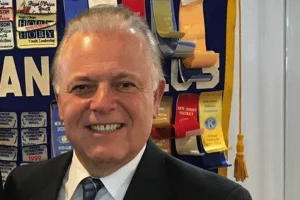Executive Director of University Heights Charter School (UHCS) in Newark, describes his student population (90% African-American, 10% Hispanic, 85% eligible for free breakfast and lunch, 15% special education), many of whom suffer trauma from regular exposure to murder, violence, lost siblings and relatives.
However, innovative programs that meet students’ social-emotional needs have been cut because of inadequate state aid and, unlike traditional schools, charters must pay rent. Staff salaries consume 80% of the annual budget and the school is currently $1.3 million short in anticipated funding. Mr. Simmons makes a fervent call for collaboration so that UHCS can serve its needy students:
In the face of these challenges, we remain tough and determined and grateful for steady funding from last year, despite the economic challenges it brings. I am tremendously proud of the gains our team has been able to accomplish despite diminishing resources, and know that this gap is largely filled by tremendous personal and family sacrifices by staff, students, and parents alike.
As we are faced with this reality of limited resources, it is imperative that all schools — traditional, charter, magnet, and private alike — work together to come up with innovative ways to serve our most at-risk students and continue to share best practices throughout the state. Collaboration, not combativeness, is what will help ensure all children have the resources they need to thrive.




